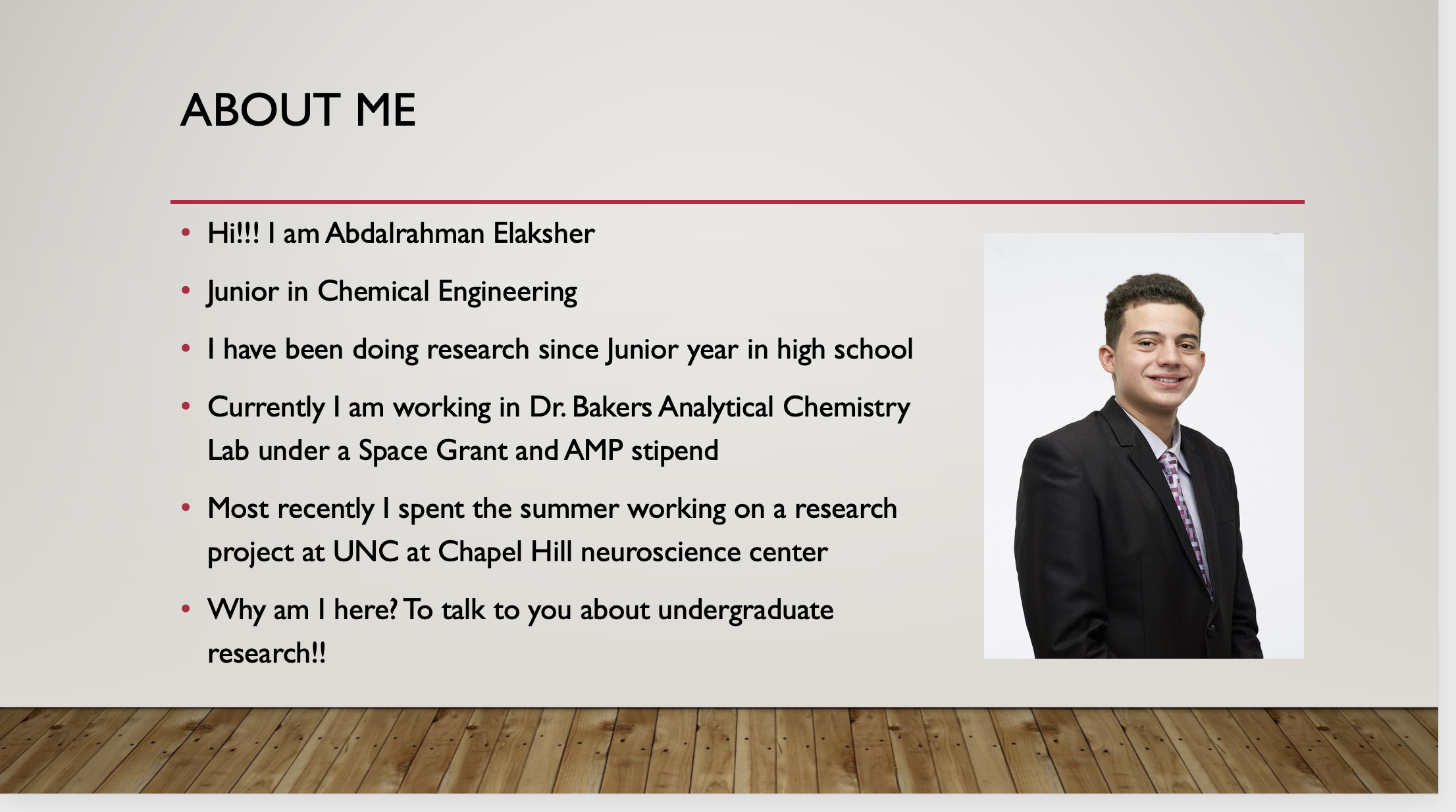Resources
Other Resources Links
How to Narrow your Topic
To develop a research question, begin with a general topic, gather background information, consult informal non-academic sources as needed, locate academic sources to rely on, and ask yourself what questions these sources raise about your topic that you might be able to explore.
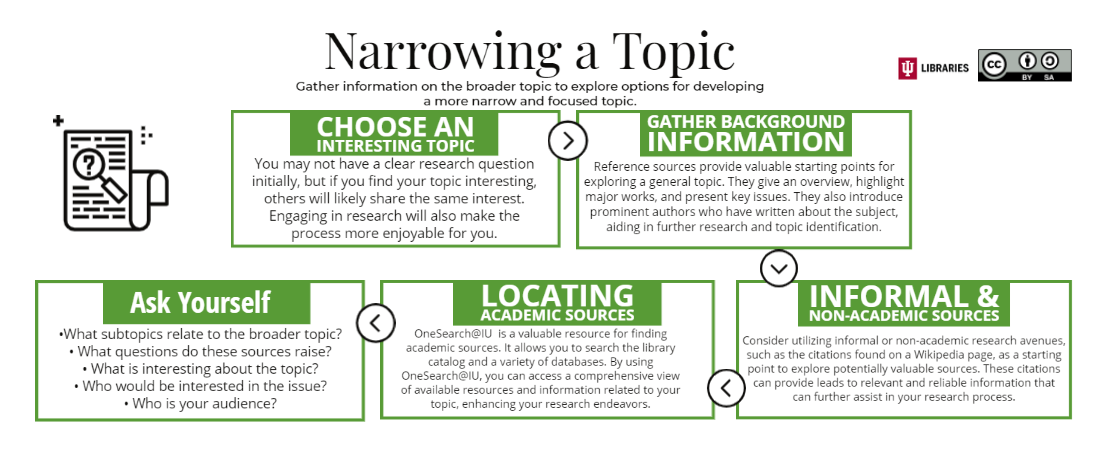
Source: Indiana University Library, Bloomington
Tips for Designing a Research Poster
See this clear, step-by-step powerpoint on how to design your poster using the IMRaD method (courtesy of NM AMP):
- INTRODUCTION
- METHOD
- RESULTS
- And
- DISCUSSION
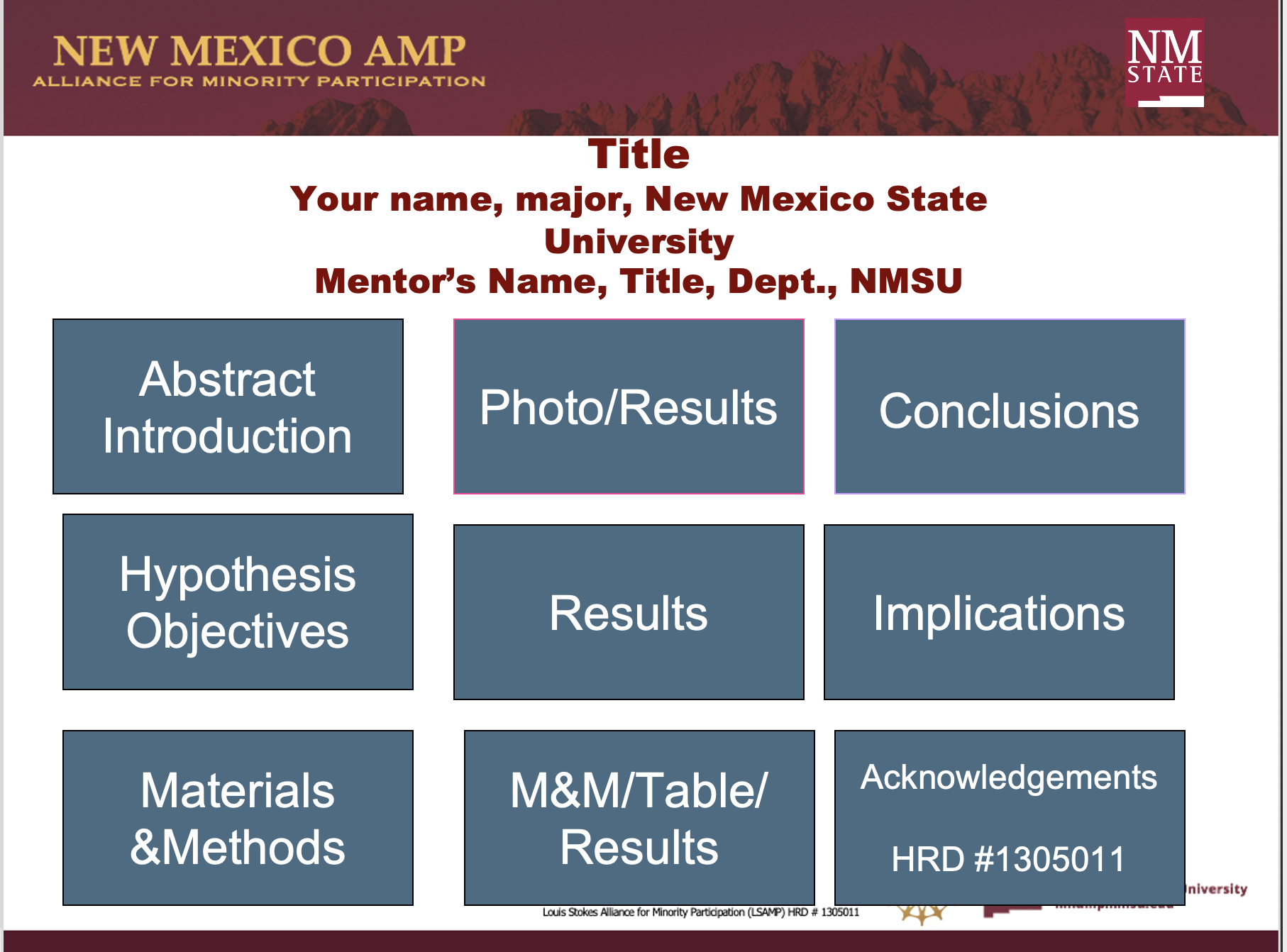
More information and templates coming soon!
Tips for Designing a Poster in Social Sciences or Humanities
Posters can be an effective way to present research information in the humanities and social sciences. Elizabeth Tobey at the University of Maryland offers great advice about how to organize your material visually on the poster and talk about it with those visiting the poster session: click here for her guide to creating social science, humanities, and arts posters.
Check out the example below from Tobey. Many more examples can be found in this online archive of the University of Texas, Austin, Office of Undergraduate Research: https://undergradcollege.utexas.edu/academics/undergraduate-research/guide-creating-research-posters/poster-samples.

Tips for Presenting Your Research
Getting ready for a Poster Presentation? Watch this video:
Are you having trouble deciding how to start your presentation? Check this out:
Is your presentation on Zoom?
Dress to Impress
Tips for Writing a Research Question
How do you turn a topic you are curious about into a research question for a paper, project, or proposal? This exercise from the University of Guelph Library helps you narrow and focus.
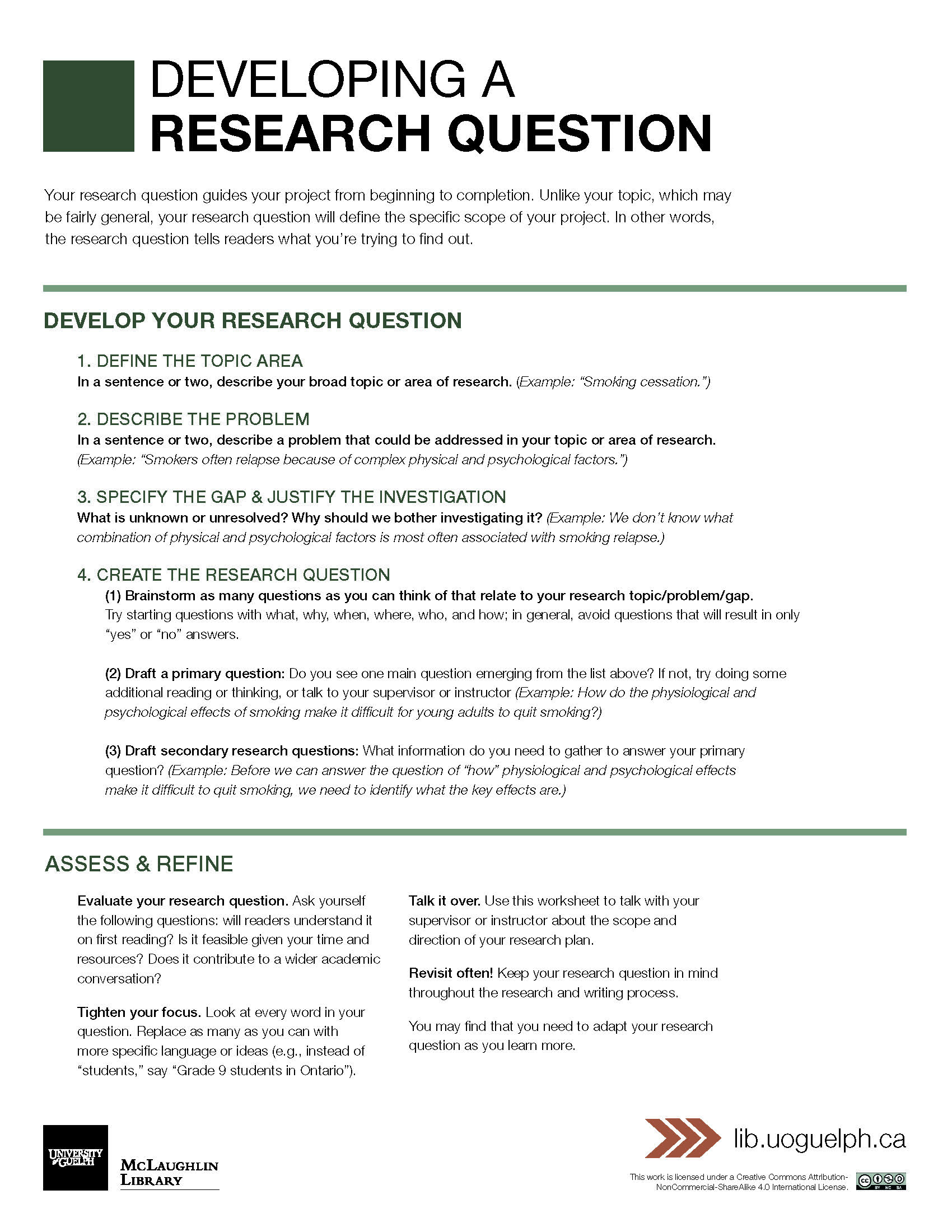
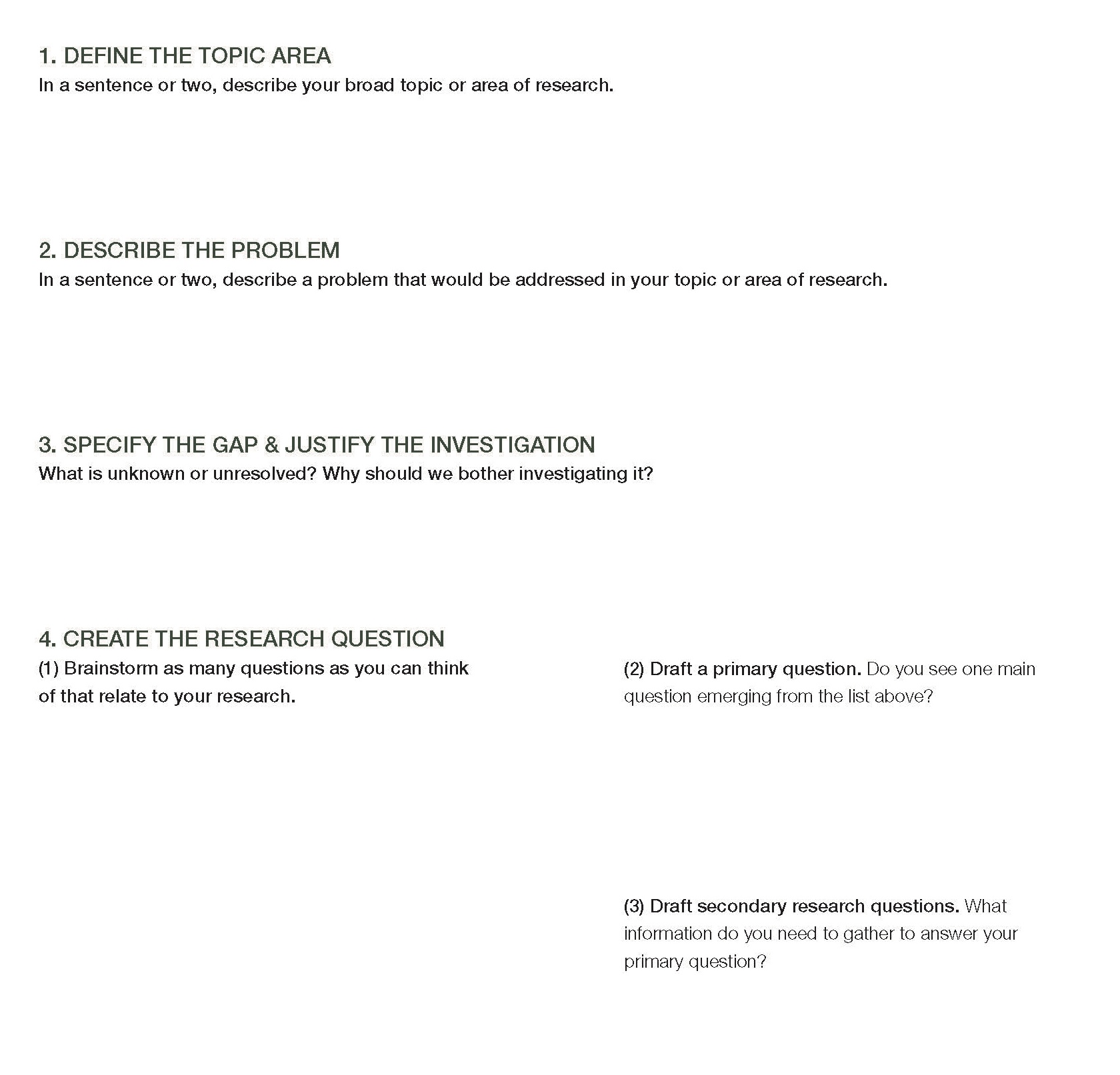
Tips for Finding Research Opportunities in STEM
Undergraduate researcher Abdalrahman Elaksher (Chemical Engineering) talks about research opportunities at NMSU:
How to get started? Browse the STEM/Medicine opportunities on this website, read the biweekly CrimsonOpps newsletter, attend CURCA events like the Open House, and follow CURCA on social media for announcements.
In addition to this general advice, some specific tips for students interested in getting involved in STEM and health-related research:
Tip 1: Meet with a faculty member in your major department and ask what research projects you might become involved with. They will know of opportunities on and off campus to work in a lab. A faculty member who knows you from a class, preferably in-person, is a great idea--remember that regular faculty at NMSU in all fields do research or creative scholarship as part of our job. You may also find faculty with relevant interests on the department website. Read their bios and go to lab websites for a sense of their research activities. Email to make an appointment.
Before this meeting:
- think about why you want to do research. What draws you to it intrinsically? This may be what draws you to the field as a whole. Or you may want to develop specific skills, such as working with specific equipment, programming, or techniques. Whatever your reason, be prepared to explain this.
- update (or create) your resume, including on it all courses you have taken in the field, any work experience that might display relevant skills or show that you have handled responsibility, detail, etc.
- follow up with a thank you email that makes clear you are pursuing leads you discussed together.
Tip 2: Think broadly about what research questions and experiences might interest you. When you telescope outward from your most specific interest, what more general questions arise? There will be many possible approaches to those questions, which increases number of potential research mentors with whom you might work.
For example, if your specific interest is in polycystic ovary syndrome, telescoping outward to interests in reproductive endocrinology might connect you with a faculty mentor in Biology who studies sex hormones in bats, mentors in Animal and Range Sciences who study fertility in sheep and reproductive cancers in cows, or a researcher who studies how hormones influence cells on a molecular level.
Another example: if you are interested in aerospace technologies, you might also consider research experience with drones, testing how heat and vibration alter materials, AI, or satellite cyber security.
Tip 3: Attend the Undergraduate Research and Creative Arts Symposium. Go to panels and find posters in your field. Ask the presenters how they found a path into research.
Tip 4: Make sure that you are on your department's email listserv. Attend department events and introduce yourself to faculty members if you can. Watch for announcements of opportunities and also new grants on the website, listserv, and social media.
Tip 5: Join the major club in your field and adjacent fields, such as the Biochem Club, Mech Engineering Club, and Premed Club. Peers in these clubs often are involved in research and can suggest paths for you to pursue.
Tip 6: Make contact with the undergraduate research programs that overlap with your area of interest. Networks of faculty mentors work with these programs, and the directors may able to point you toward a good fit.
Tip 7: Find out your course-based options. Does your department offer a course-based research experience, such as the Biology CURE courses 309 and 311? These provide a great foundation in research skills. Does your major culminate in a capstone project? Might you pursue the Honors capstone project? Check out independent study or directed-research options in your major--before approaching a faculty member about supervising one, brainstorm what you would want to ask/accomplish in a semester's time and write this down in a paragraph to share.
Tip 8: What do you plan to do this summer? Next summer? Make good use of your time. Apply for summer research experiences, such as NSF-REUs, an internship at a national lab or institute in your field, etc. See the national databases below to browse many, many options.
Tip 9: Does your field include competitions, such as Invent for the Planet in Engineering? Or public service outreach projects to engage high school students in your field by offering research demonstrations? Take part in these!
For pre-med students, specifically:
If you know you want to go into medical research and plan to pursue an MD/PhD, undergraduate research experience is a must. But even if you don't plan an MD/PhD, research experience can set you apart from the many other students with similar GPAs and MCAT scores.
- Talk to the pre-med advisor on campus and your department mentor about how research might fit into your degree plan,
- ask your premed course faculty about opportunities to engage in research,
- keep an open mind and telescope outward to find common interests with faculty mentors across colleges.
Check out these short videos by undergraduate researchers at NMSU who are working on biomedical projects:
Antibiotic Resistance, Isaac Melendrez
Accessible Chromatin Regions Between Duplicated Gene Copies in the Tetraploid Leucaena trichandra, Katie Banga
Evaluating endotoxin release during an infection and the effect on reproduction in sheep and cattle, Michelle Gutierrez

